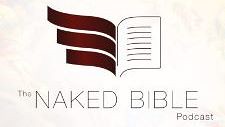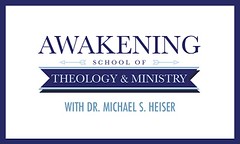Behind the walls of federal prisons nationwide, chaplains have been quietly carrying out a systematic purge of religious books and materials that were once available to prisoners in chapel libraries.
The chaplains were directed by the Bureau of Prisons to clear the shelves of any books, tapes, CDs and videos that are not on a list of approved resources. In some prisons, the chaplains have recently dismantled libraries that had thousands of texts collected over decades, bought by the prisons, or donated by churches and religious groups.
Some inmates are outraged. Two of them, a Christian and an Orthodox Jew, in a federal prison camp in upstate New York, filed a class-action lawsuit last month claiming the bureau’s actions violate their rights to the free exercise of religion as guaranteed by the First Amendment and the Religious Freedom Restoration Act.
Traci Billingsley, a spokeswoman for the Bureau of Prisons, said the agency was acting in response to a 2004 report by the Office of the Inspector General in the Justice Department. The report recommended steps that prisons should take, in light of the Sept. 11 attacks, to avoid becoming recruiting grounds for militant Islamic and other religious groups. The bureau, an agency of the Justice Department, defended its effort, which it calls the Standardized Chapel Library Project, as a way of barring access to materials that could, in its words, “discriminate, disparage, advocate violence or radicalize.”
Ms. Billingsley said, “We really wanted consistently available information for all religious groups to assure reliable teachings as determined by reliable subject experts.”
But prison chaplains, and groups that minister to prisoners, say that an administration that put stock in religion-based approaches to social problems has effectively blocked prisoners’ access to religious and spiritual materials — all in the name of preventing terrorism.
“It’s swatting a fly with a sledgehammer,” said Mark Earley, president of Prison Fellowship, a Christian group. “There’s no need to get rid of literally hundreds of thousands of books that are fine simply because you have a problem with an isolated book or piece of literature that presents extremism.”
The Bureau of Prisons said it relied on experts to produce lists of up to 150 book titles and 150 multimedia resources for each of 20 religions or religious categories — everything from Bahaism to Yoruba. The lists will be expanded in October, and there will be occasional updates, Ms. Billingsley said. Prayer books and other worship materials are not affected by this process.
The lists are broad, but reveal eccentricities and omissions. There are nine titles by C. S. Lewis, for example, and none from the theologians Reinhold Niebuhr, Karl Barth and Cardinal Avery Dulles, and the influential pastor Robert H. Schuller.
The identities of the bureau’s experts have not been made public, Ms. Billingsley said, but they include chaplains and scholars in seminaries and at the American Academy of Religion. Academy staff members said their organization had met with prison chaplains in the past but was not consulted on this effort, though it is possible that scholars who are academy members were involved.
The bureau has not provided additional money to prisons to buy the books on the lists, so in some prisons, after the shelves were cleared of books not on the lists, few remained.
A chaplain who has worked more than 15 years in the prison system, who spoke on condition of anonymity because he is a bureau employee, said: “At some of the penitentiaries, guys have been studying and reading for 20 years, and now they are told that this material doesn’t meet some kind of criteria. It doesn’t make sense to them. They’re asking, ‘Why are our tapes being taken, why our books being taken?’ ”
Of the lists, he said, “Many of the chaplains I’ve spoken to say these are not the things they would have picked.”
The effort is unnecessary, the chaplain said, because chaplains routinely reject any materials that incite violence or disparage, and donated materials already had to be approved by prison officials. Prisoners can buy religious books, he added, but few have much money to spend.
Religious groups that work with prisoners have privately been writing letters about their concerns to bureau officials. Would it not be simpler, they asked the bureau, to produce a list of forbidden titles? But the bureau did that last year, when it instructed the prisons to remove all materials by nine publishers — some Muslim, some Christian.
The plan to standardize the libraries first became public in May when several inmates, including a Muslim convert, at the Federal Prison Camp in Otisville, N.Y., about 75 miles northwest of Manhattan, filed a lawsuit acting as their own lawyers. Later, lawyers at the New York firm of Paul, Weiss, Rifkind, Wharton & Garrison took on the case pro bono. They refiled it on Aug. 21 in the Federal District Court for the Southern District of New York.
“Otisville had a very extensive library of Jewish religious books, many of them donated,” said David Zwiebel, executive vice president for government and public affairs for Agudath Israel of America, an Orthodox Jewish group. “It was decimated. Three-quarters of the Jewish books were taken off the shelves.”
Mr. Zwiebel asked, “Since when does the government, even with the assistance of chaplains, decide which are the most basic books in terms of religious study and practice?”
The lawsuit raises serious First Amendment concerns, said Douglas Laycock, a professor of law at the University of Michigan Law School, but he added that it was not a slam-dunk case.
“Government does have a legitimate interest to screen out things that tend to incite violence in prisons,” Mr. Laycock said. “But once they say, ‘We’re going to pick 150 good books for your religion, and that’s all you get,’ the criteria has become more than just inciting violence. They’re picking out what is accessible religious teaching for prisoners, and the government can’t do that without a compelling justification. Here the justification is, the government is too busy to look at all the books, so they’re going to make their own preferred list to save a little time, a little money.”
The lists have not been made public by the bureau, but were made available to The Times by a critic of the bureau’s project. In some cases, the lists belie their authors’ preferences. For example, more than 80 of the 120 titles on the list for Judaism are from the same Orthodox publishing house. A Catholic scholar and an evangelical Christian scholar who looked over some of the lists were baffled at the selections.
Timothy Larsen, who holds the Carolyn and Fred McManis Chair of Christian Thought at Wheaton College, an evangelical school, looked over lists for “Other Christian” and “General Spirituality.”
“There are some well-chosen things in here,” Professor Larsen said. “I’m particularly glad that Dietrich Bonhoeffer is there. If I was in prison I would want to read Dietrich Bonhoeffer.” But he continued, “There’s a lot about it that’s weird.” The lists “show a bias toward evangelical popularism and Calvinism,” he said, and lacked materials from early church fathers, liberal theologians and major Protestant denominations.
The Rev. Richard P. McBrien, professor of theology at the University of Notre Dame (who edited “The HarperCollins Encyclopedia of Catholicism,” which did make the list), said the Catholic list had some glaring omissions, few spiritual classics and many authors he had never heard of.
“I would be completely sympathetic with Catholic chaplains in federal prisons if they’re complaining that this list is inhibiting,” he said, “because I know they have useful books that are not on this list.”


































